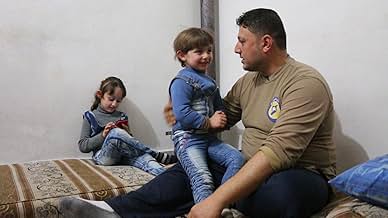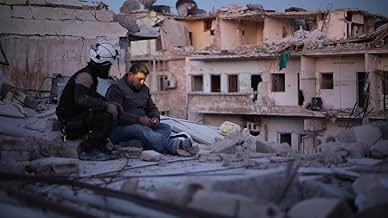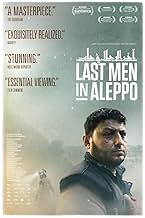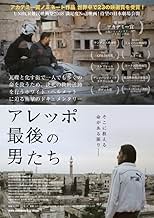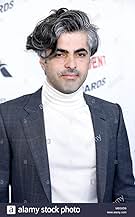"There is nothing intelligent to say about a massacre. Everybody is supposed to be dead, to never say anything or want anything ever again. Everything is supposed to be very quiet after a massacre, and it always is, except for the birds. And what do the birds say? All there is to say about a massacre, things like 'Poo-tee-weet?'" Kurt Vonnegut, Slaughterhouse-Five
Call it what you will, Syria's President Assad's pummeling his people with the aid of Russian bombers is genocide plain and simple. You do not want to see the blunt documentary Last Men in Aleppo if you support Assad or can't stomach The White Helmets pulling dead babies from rubble.
What you will see, however, is a first-rate rendering from the streets of Helmet heroic citizens risking their lives to save the victims of the destruction. The doc concentrates on Khaled Omar, a founder of the Helmets, looking for people to save all the time staying in contact through cell with his family. On occasion he plays with the kids at an oasis of a playground.
Therein lies the supreme irony of people trying to survive holocaust and trying to retain the dignities of normal life. As one Helmet says, "Should we sit down and cry or what?" Actually only the words of the survivors can get even close to understanding genocide in our own time, 250,000 Syrians dead since the purge began in 2011.
Although Khaled and his crew save adults as well, the children are the starkest notion of cruelty on a mass basis and the loss of future for everyone, as Khaled says profoundly and prophetically, "The dilemma is the children." Despite the discursive narration and exposition that seem to randomly course among the ruins, the cumulative effect of sorrow and brief joy is to give us an unforgettable documentary experience, even if we go back to our democratic safety zones, creating a few potholes on an airstrip while the city burns.
"The horror! The horror!" Joseph Conrad's Kurtz in Heart of Darkness


